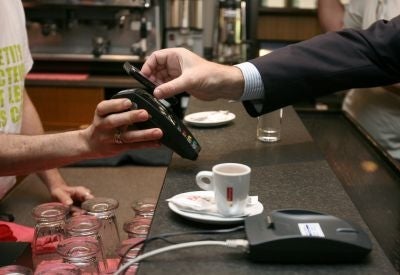Your support helps us to tell the story
From reproductive rights to climate change to Big Tech, The Independent is on the ground when the story is developing. Whether it's investigating the financials of Elon Musk's pro-Trump PAC or producing our latest documentary, 'The A Word', which shines a light on the American women fighting for reproductive rights, we know how important it is to parse out the facts from the messaging.
At such a critical moment in US history, we need reporters on the ground. Your donation allows us to keep sending journalists to speak to both sides of the story.
The Independent is trusted by Americans across the entire political spectrum. And unlike many other quality news outlets, we choose not to lock Americans out of our reporting and analysis with paywalls. We believe quality journalism should be available to everyone, paid for by those who can afford it.
Your support makes all the difference.The majority of young consumers are eager to swap their wallets for a mobile phone. They are enthusiastically awaiting the time when shops across the world start to implement contactless payment systems.
According to a study conducted by Kelton Research and released by Mastercard Worldwide on May 19, 63 percent of 18 to 34-year-olds state that they are at ease using their mobile phone to make purchases.
An even higher percentage (65 percent) of young Americans would rather be without their wallet than their mobile phone.
"Consumers are already living a mobile lifestyle so using their phones to make payments on a daily basis is a natural next step," said Mung Ki Woo, group executive, mobile at MasterCard Worldwide. "2011 is the beginning of the NFC mobile payments era, and consumers are eager to get their hands on the first commercial deployments in the U.S."
Older technology users are not quite so gung-ho about mobile payments. Sixty-three percent of people over the age of 35 said they would not be at ease using technology such as NFC (near field communication) to make mobile phone payments.
Information privacy and financial safety are concerning factors for 62 percent of respondents who said they would need these two issues addressed before they would feel comfortable making a transaction via their mobile device.
While privacy and safety remain a concern for all mobile users, the smartphone generation has grown so reliant on their devices that they find it hard to live without it.
A May 2011 study on mobile internet access by Ericsson found that 35 percent of US Android and iPhone users interacted with their phone before getting out of bed in the morning.
The electronic gadget that the smartphone generation carries around so proudly has come to define their personality.
Fifty-two percent of respondents in Mastercard's study said that someone’s mobile phone is "more telling of their personality than their wallet."

Join our commenting forum
Join thought-provoking conversations, follow other Independent readers and see their replies
Comments